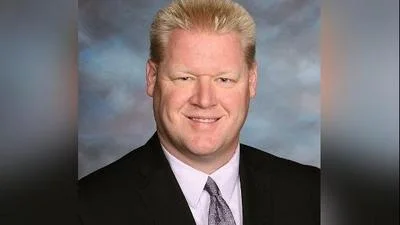Scott Allen, Wisconsin State Representative for 82nd District | Facebook
Scott Allen, Wisconsin State Representative for 82nd District | Facebook
According to the Wisconsin State Legislature's official website, the bill was described as follows: "school safety grants and making an appropriation. (FE)".
The following is our breakdown, based on the actual bill text, and may include interpretation to clarify its provisions.
In essence, this bill mandates the creation of a competitive school safety grant program by the Office of School Safety within the Department of Justice, aimed at enhancing the safety of school buildings and providing security training to personnel at public, private, and tribal schools. The program will prioritize applicants who have not previously received a school safety grant from the DOJ. The grants are capped at $20,000 per recipient, with a total allocation of $30 million. An annual report on grant awards and expenditure is required for submission to the Joint Committee on Finance, with the program concluding on July 1, 2027. The bill becomes effective immediately following publication or after the 2025 biennial budget act's publication.
The bill was co-authored by Senator Jesse L. James (Republican-23rd District), Representative David Armstrong (Republican-67th District), Representative Elijah R. Behnke (Republican-6th District), Representative Lindee Rae Brill (Republican-27th District), Representative Calvin T. Callahan (Republican-35th District). It was co-sponsored by Senator Dan Feyen (Republican-20th District), Senator Sarah Keyeski (Democrat-14th District), and Senator Steve L. Nass (Republican-11th District), along 13 other co-sponsors.
Scott Allen has co-authored or authored another 11 bills since the beginning of the 2025 session, with none of them being enacted.
Allen graduated from the University of Wisconsin-Milwaukee in 1989 with a BA.
Allen, a Republican, was elected to the Wisconsin State Assembly in 2025 to represent the state's 82nd Assembly district, replacing previous state representative Chuck Wichgers.
In Wisconsin, the legislative process starts when a senator, constituent, group, or agency proposes an idea for a bill. After drafting, the bill is introduced, numbered, and referred to a committee for review and public input. If approved, it moves through three readings and votes in both the Senate and Assembly. Once both chambers pass the same version, the bill goes to the governor, who can sign it, veto it, or let it become law without a signature. Only a small share of bills introduced each session ultimately become law. You can learn more about the Wisconsin legislative process here.
| Bill Number | Date Introduced | Short Description |
|---|---|---|
| AB40 | 02/17/2025 | School safety grants and making an appropriation. (FE) |
| AB39 | 02/17/2025 | Requiring state employees to perform their work at the offices of their employer |
| AB37 | 02/17/2025 | Personalized registration plate fees for gold star family special registration plates. (FE) |
| AB20 | 02/06/2025 | Allowing certain married persons to claim the earned income tax credit when filing a separate return. (FE) |
| AB19 | 02/06/2025 | Increased penalties for crimes against adults at risk; restraining orders for adults at risk; freezing assets of a defendant charged with financial exploitation of an adult at risk; sexual assault of an adult at risk; and providing a penalty |






 Alerts Sign-up
Alerts Sign-up